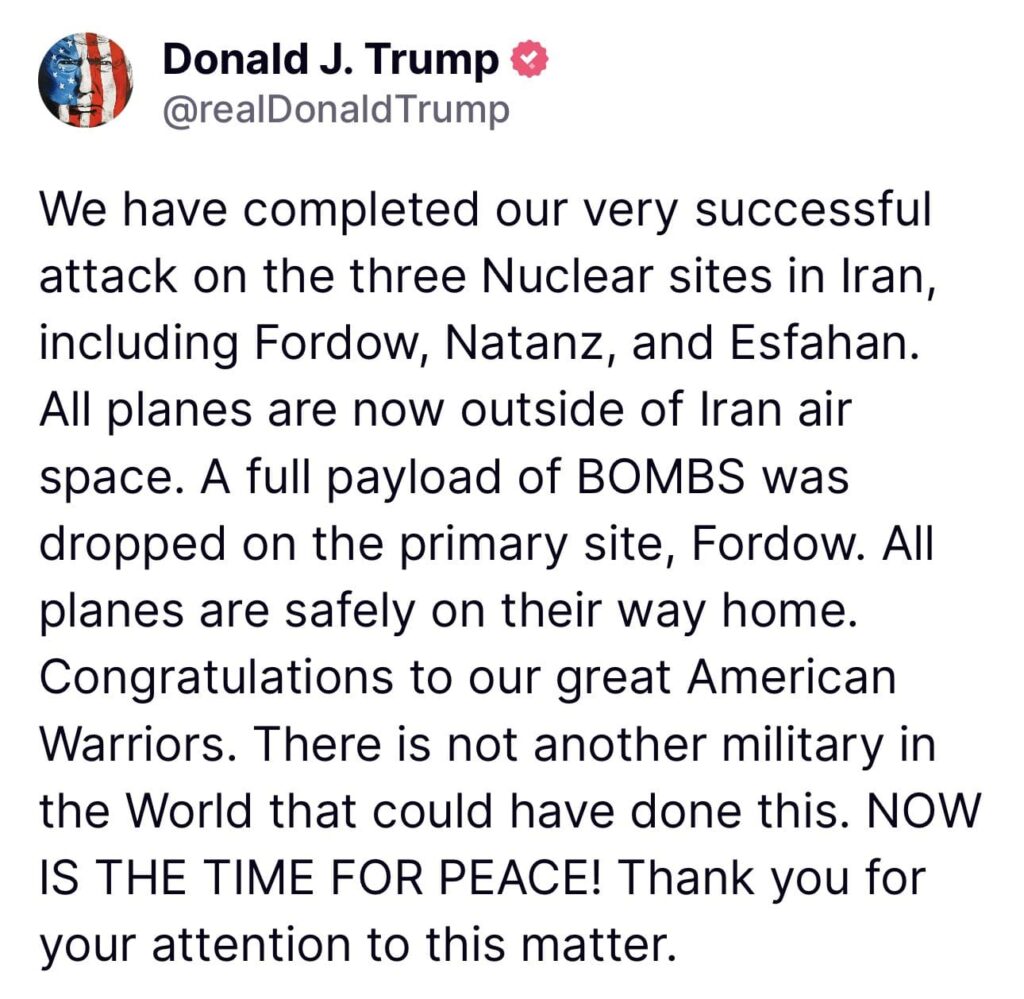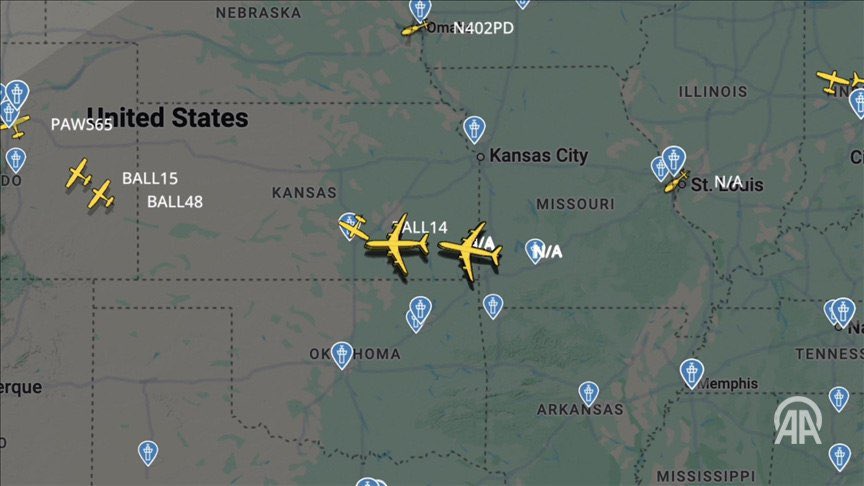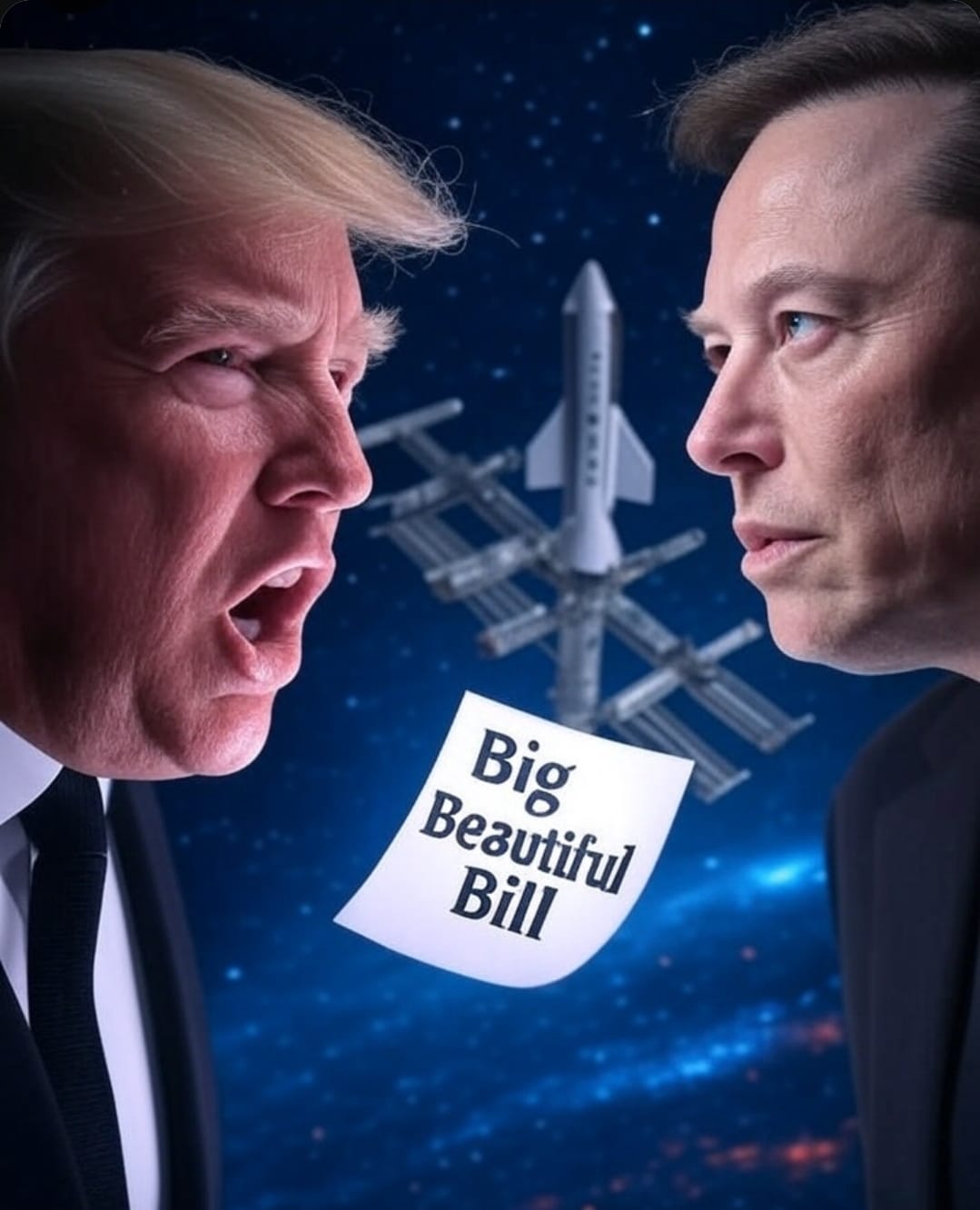22 June 2025
The United States has dramatically escalated its role in the ongoing conflict between Iran and Israel, marking a new chapter in Middle Eastern geopolitics. On June 21, 2025, President Donald Trump announced that U.S. forces conducted precision strikes by B-2 spirit Bombers on Iran’s nuclear facilities at Fordow, Natanz, and Isfahan, following Israel’s initial attack on June 13, 2025, and Iran’s subsequent missile retaliation. This move, overseen from the White House Situation Room with Defense Secretary Pete Hegseth by Trump’s side, reflects a strategic shift driven by the U.S.-Israel alliance and growing concerns over Iran’s nuclear capabilities. However, this intervention raises critical questions about regional stability, economic repercussions, and the feasibility of a diplomatic resolution.



The roots of the Iran-Israel conflict stretch back to the 1979 Iranian Revolution, which ended decades of cordial relations under the Shah and ushered in a theocratic regime hostile to Israel. Since then, Iran has supported proxy groups like Hezbollah and Hamas, fueling a proxy war that intensified through the 1980s and 1990s with covert operations and assassinations Iran–Israel proxy conflict. The recent escalation began on June 13, 2025, when Israel launched a preemptive strike on Iranian nuclear and military targets, killing key figures and prompting Iran’s retaliatory missile barrage. Recent developments took place With Iran’s uranium enrichment reaching 60%, a threshold close to weapons-grade levels—the U.S. decision to join the fray reflects long-standing efforts to curb Tehran’s nuclear ambitions.
The U.S. strikes on June 21, 2025, were framed as a decisive action to neutralize Iran’s nuclear threat, with Trump declaring the facilities “completely and totally obliterated” US inserts itself into Israel’s war with Iran, strikes 3 Iranian nuclear sites. The operation, conducted alongside Israel, aimed to support its ally and prevent Iran from achieving nuclear capability, a concern heightened by Iran’s fortified facilities like Fordow, buried 80 meters underground. However, Iranian Foreign Minister Abbas Araghchi warned of “everlasting consequences,” signaling potential retaliation against U.S. assets, while the Houthis in Yemen labeled the strikes a “declaration of war” Iran–Israel war.
Implications and Future Scenarios
The U.S. involvement introduces a range of potential outcomes, each with significant stakes:
Risk of Escalation: Experts warn of a high likelihood of Iranian retaliation, potentially targeting U.S. bases in the region or escalating through proxies like Hezbollah. Andreas Krieg from King’s College London cautions that this could lead to a “quagmire,” with air power alone insufficient to resolve the conflict US joining Israeli strikes would cause hell, Iranian minister tells BBC.
Effectiveness of Military Action: The deep underground placement of facilities like Fordow raises doubts about the strikes’ success in dismantling Iran’s nuclear program. Toby Dodge from the London School of Economics notes Iran’s technological resilience, suggesting that military action may not eliminate its capabilities.
Political Fallout in the U.S.: Public support for another Middle Eastern conflict appears low, with Congress, led by figures like Chuck Schumer, demanding justification under the War Powers Act. This could strain Trump’s political base and domestic stability.
Regional Instability: The conflict risks drawing in Saudi Arabia, Turkey, and Russia, with Syria and Iraq as potential flashpoints due to Iranian influence. The activation of Iran’s “axis of resistance” could turn this into a multi-front war Israel’s war with Iran could spiral out of control and draw the U.S. inn.
Global Economic Impact: Disruption to the Strait of Hormuz, a conduit for one-third of the world’s seaborne oil, could trigger a price surge, affecting global markets. Ellen Wald from the Atlantic Council highlights the vulnerability of this chokepoint What would an Israel-Iran war mean for the global economy?
Diplomatic Challenges: The strikes have stalled nuclear negotiations, with Iran refusing talks under attack. UN Secretary-General Antonio Guterres has urged de-escalation to avoid “racing toward chaos” Israel Conducts New Strikes on Tehran and Trump Calls for Iran’s ‘Unconditional Surrender’.
The U.S. entry into the Iran-Israel conflict on June 21, 2025, represents a bold but risky move with far-reaching implications. While aimed at neutralizing Iran’s nuclear threat and bolstering Israel, it risks plunging the region into broader instability, with potential economic shocks and diplomatic setbacks. The effectiveness of military action remains uncertain, and domestic political pressures in the U.S. could complicate the Trump administration’s strategy. Moving forward, the international community, including the UN, must prioritize diplomatic efforts to prevent a full-scale war, balancing security concerns with the need for stability in this volatile region.



